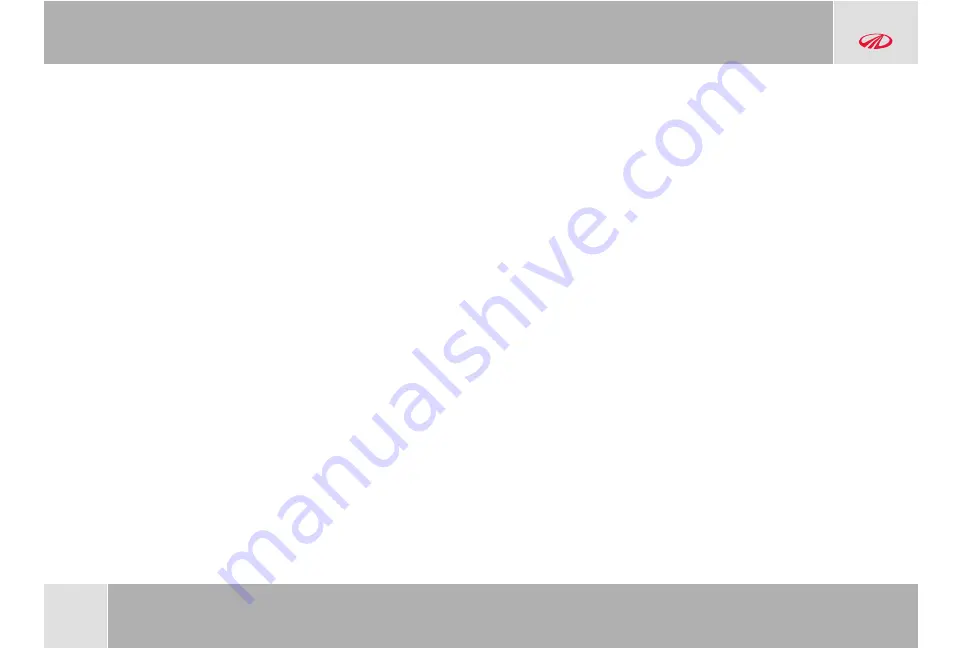
12-8
© Copyright Mahindra and Mahindra Ltd.062016
•
Fluid leaks
•
Doors and engine hood latches
•
Tire inflation pressure
•
Tire surface/thread and wheel nuts
12.5 In the Engine Compartment
12.5.1 Fluid Leaks
Check the engine compartment and the underbody of the vehicle
for any leaks. If you smell fuel vapor or notice any leak, have the
cause found and corrected immediately.
12.5.2 Engine Oil
Engine oil has the primary function of lubricating and cooling the
inside of the engine. It plays a major role in maintaining the engine
in proper working order. Therefore, it is essential to check the
engine oil regularly.
12.5.3 Engine Oil Consumption
It is normal for engines to consume some engine oil during
operation.
Causes of consumption in a normal engine are as follows;
•
Oil is used to lubricate pistons, piston rings and cylinders. Thin
films of oil, left over when pistons move in cylinders, are sucked
into the combustion chamber due to high negative pressure
generated when the vehicle is decelerating. This oil gets burnt in
the combustion chamber
•
Oil is also used to lubricate the stems of intake valves. Some of
this oil is sucked into the combustion chamber together with the
intake air and is burnt there
•
Engine oil consumption depends upon the viscosity and quality of
the oil, and upon the conditions in which the vehicle is driven. Oil
consumption will be more due to high speed driving and frequent
acceleration and deceleration. A new engine may consume more
oil since its pistons, piston rings and cylinder walls are not
conditioned
12.5.4 Checking/Topping the Engine Oil
•
Make sure the vehicle is on level ground
•
Turn the engine OFF and wait a few minutes for the oil to settle
down into the oil sump
•
Apply the parking brake
•
Open the hood. Protect yourself from engine heat
•
Locate and carefully remove the engine oil level dipstick
MAINTENANCE






























